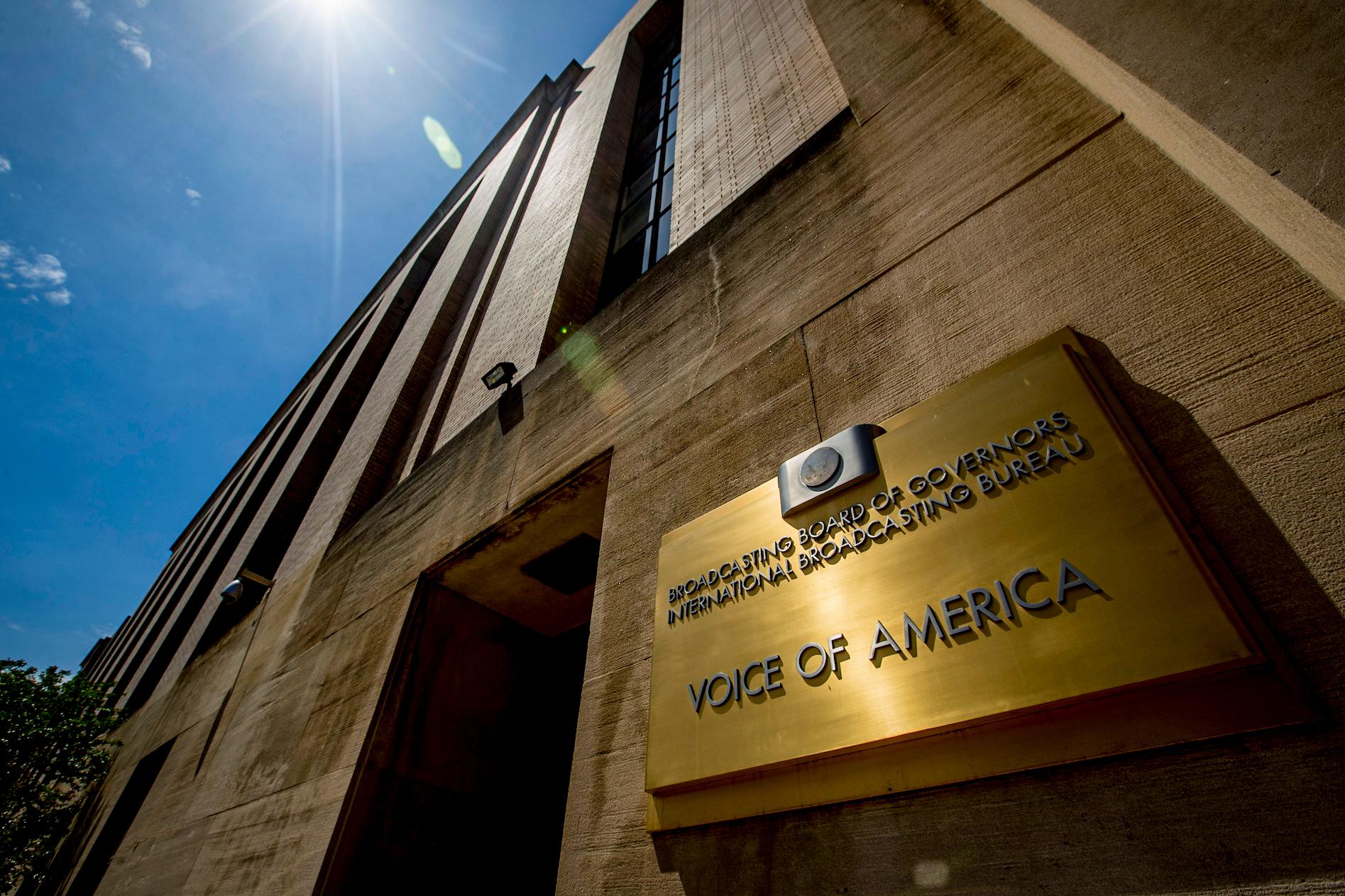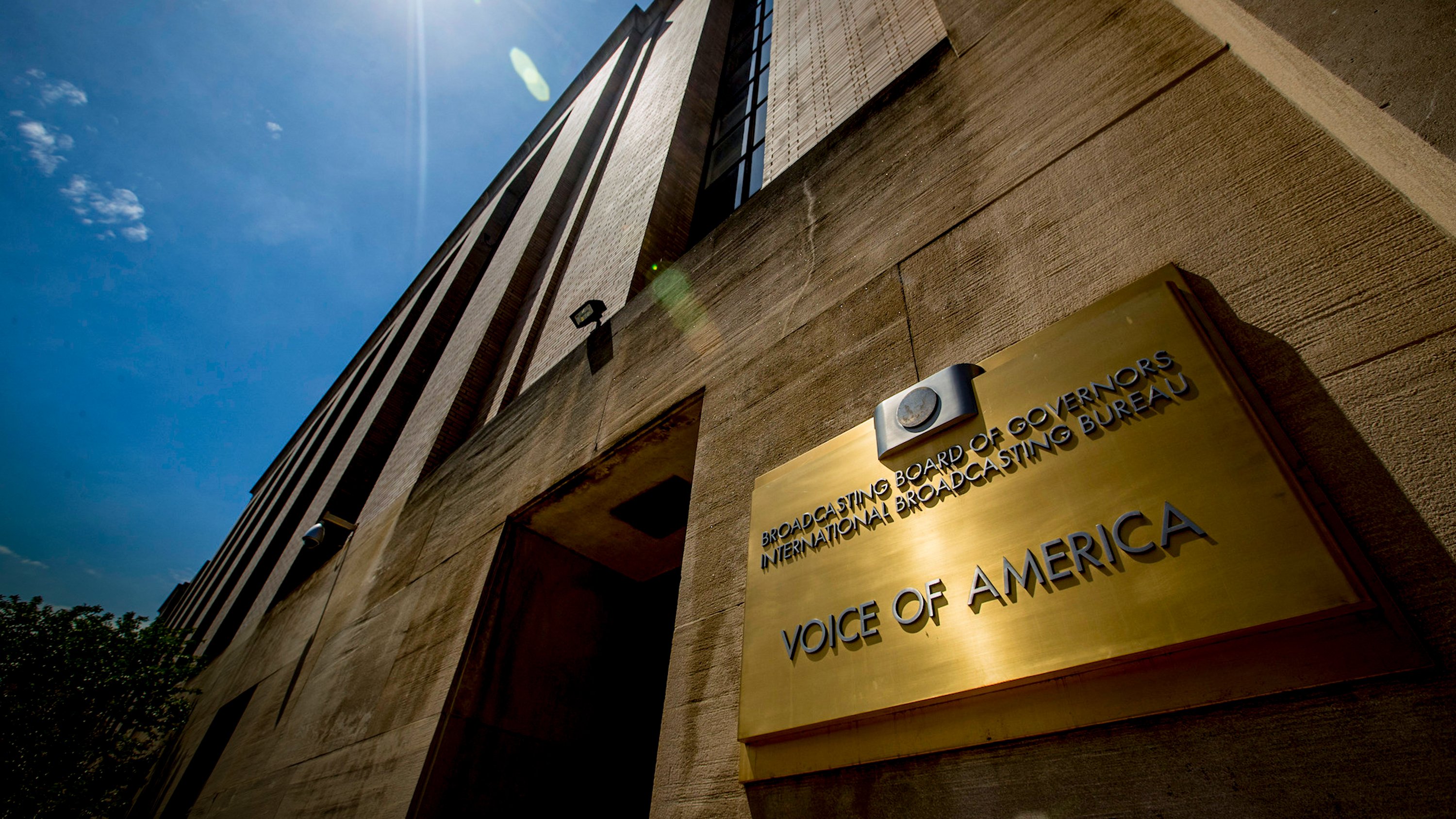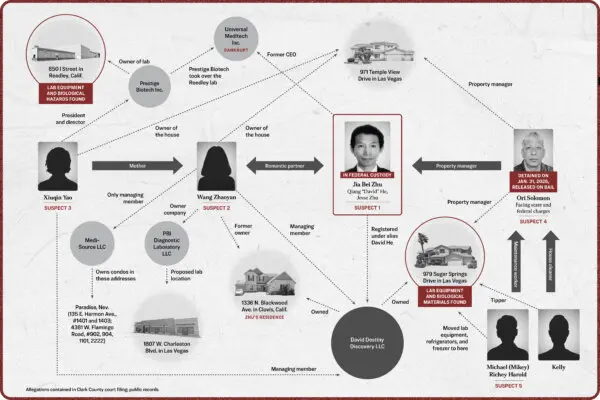President Donald Trump’s plans to cut government spending and reduce funding to public media have ruffled feathers in Washington and triggered lawsuits from journalists whose jobs at Voice of America and other taxpayer-funded media agencies have been threatened.
Trump signed an executive order on March 14, slashing funding at seven agencies and reducing their functions and staffing to the minimum required by law.











